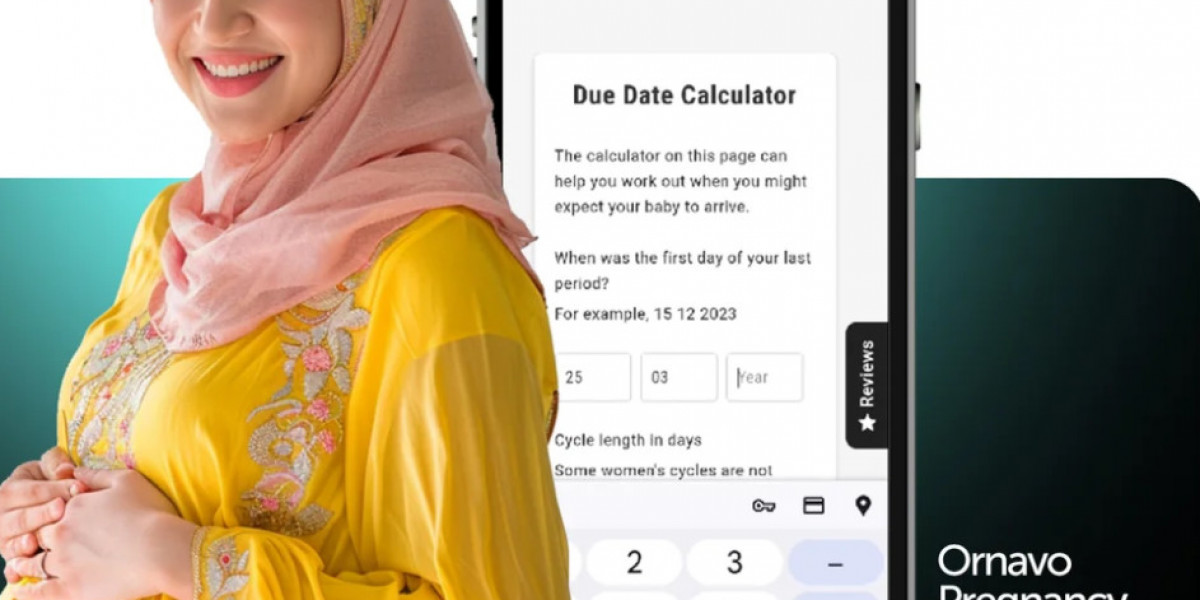In-vitro fertilization (IVF) has given hope to millions of couples worldwide who face fertility challenges. One of the most exciting moments in the IVF journey is finding out the due date of the baby. Unlike natural conception, where the estimated due date is based on the last menstrual period, IVF pregnancies follow a more precise calculation. This is where an IVF Due Date Pregnancy Calculator becomes invaluable.
But did you know that modern IVF due date calculators come with advanced features that make pregnancy tracking even more accurate and informative? In this article, we will explore these advanced functionalities, discuss their benefits, and compare IVF due date calculators with traditional pregnancy calculators.
Understanding IVF and Pregnancy Due Dates
IVF is a process where an egg is fertilized outside the body and then implanted into the uterus. Since the exact date of embryo transfer is known, determining the due date is more precise compared to natural conception.
A standard pregnancy lasts around 40 weeks (280 days) from the first day of the last menstrual period (LMP). However, in IVF pregnancies, doctors use embryo transfer dates to determine the due date more accurately. Here’s how it works:
For a Day 3 embryo transfer, the estimated due date is 263 days (37 weeks and 4 days) after the transfer.
For a Day 5 embryo transfer, the estimated due date is 261 days (37 weeks and 2 days) after the transfer.
Since every pregnancy is unique, an IVF Due Date Pregnancy Calculator incorporates these variations to provide a precise estimation.
How an IVF Due Date Pregnancy Calculator Works
An IVF due date calculator works by taking into account several key inputs:
Embryo Transfer Date – The actual date the embryo was implanted.
Embryo Age at Transfer – Whether a 3-day or 5-day embryo was transferred.
Fertilization Date – The date when the egg was fertilized, useful for additional accuracy.
Gestational Age at Transfer – The developmental stage of the embryo at the time of transfer.
Based on these inputs, the calculator estimates the expected due date, giving parents a clear timeline for their pregnancy journey.
Advanced Features of an IVF Due Date Pregnancy Calculator
With technological advancements, modern IVF due date calculators now come with a variety of features that enhance their accuracy and functionality. Let’s explore some of these advanced capabilities:
1. Accuracy and Customization
Unlike traditional pregnancy calculators, an advanced IVF due date calculator allows users to input personalized details such as embryo age, fertilization date, and implantation stage. This level of customization ensures a high degree of accuracy, making it particularly beneficial for those undergoing fertility treatments.
2. Different IVF Procedures Supported
Many calculators now support various types of assisted reproductive technologies, including:
Frozen Embryo Transfer (FET) – Some couples use frozen embryos for implantation. The calculator adjusts due dates accordingly.
Donor Egg IVF – When donor eggs are used, the calculator considers the embryo age at the time of transfer.
ICSI and IUI Adjustments – Some calculators include calculations for Intracytoplasmic Sperm Injection (ICSI) and Intrauterine Insemination (IUI), offering versatility.
3. Twin and Multiple Pregnancy Calculation
IVF increases the chances of twin or multiple pregnancies. Advanced calculators account for multiple gestations, adjusting due dates to reflect the typical shorter gestational period for twins or triplets, which is around 37 weeks instead of 40 weeks.
4. Integration with Pregnancy Tracking Apps
Many modern IVF due date calculators sync with mobile pregnancy tracking apps. This integration allows users to:
Monitor fetal development week by week.
Receive reminders for prenatal checkups.
Track symptoms and milestones.
5. Week-by-Week Pregnancy Progress Insights
Some calculators provide detailed pregnancy progress updates, including:
Baby’s size and weight estimation per week.
Expected fetal movements at different stages.
Guidance on prenatal care and dietary recommendations.
6. Adjustments for Implantation Variations
Not all embryos implant at the same rate. Some calculators allow adjustments for implantation timing, recognizing that some embryos take a few extra days to implant into the uterine lining. This ensures a more realistic estimated due date.
Common Myths and Misconceptions About IVF Due Date Calculation
Despite its accuracy, some myths still surround IVF due date calculation. Let’s debunk a few:
Myth: IVF due dates are always exact.
Fact: While more precise than natural conception, small variations in implantation can cause slight shifts in due dates.
Myth: IVF pregnancies always last 40 weeks.
Fact: Many IVF pregnancies result in early labor, especially with multiple pregnancies.
Myth: Natural and IVF pregnancy due dates are calculated the same way.
Fact: IVF due dates rely on embryo transfer, while natural pregnancy due dates are estimated based on the last menstrual period.
FAQ's
Can I use a regular pregnancy due date calculator for IVF?
Regular due date calculators are not accurate for IVF pregnancies because they assume conception occurs two weeks after the last period. An IVF-specific calculator provides a more precise estimate based on embryo transfer details.
What happens if my IVF pregnancy results in twins?
If you’re expecting twins or multiples, an IVF Due Date Pregnancy Calculator will adjust the due date accordingly. Twin pregnancies typically last around 37 weeks, while triplets or higher-order pregnancies may be even shorter.
Can the due date change after an early ultrasound?
Yes, your doctor may adjust the estimated due date based on ultrasound measurements. However, the IVF due date calculator provides a highly accurate estimate from the beginning.
Do all IVF pregnancies result in early delivery?
Not necessarily. While many IVF pregnancies tend to be delivered slightly earlier than natural pregnancies, some go full term. Your doctor will monitor your pregnancy to determine the best delivery plan.
Is an IVF due date calculator reliable for frozen embryo transfers (FET)?
Yes! Many advanced IVF due date calculators allow you to input whether the embryo was fresh or frozen, adjusting the due date accordingly.
Conclusion
An IVF Due Date Pregnancy Calculator is an essential tool for couples undergoing fertility treatments. With its advanced features, including accuracy, multiple pregnancy support, integration with tracking apps, and customization for various IVF procedures, it provides a precise and reliable due date estimation.
If you are on an IVF journey, using an advanced calculator can help you plan better, track your pregnancy milestones, and ensure you receive proper prenatal care. Whether you’re expecting a single baby or twins, these calculators offer valuable insights to make your pregnancy experience even more exciting!







